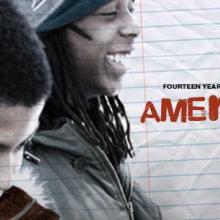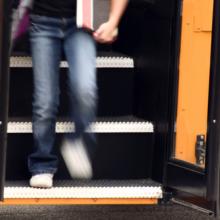education system
"I bet if I were white then I'd be better off … Isn’t that true?” - Idris
A 9-year-old African-American boy lay on the couch, rubbing his head, and told his dad that if he just went to another school, life would be better. If he were just white, life would be better. He clarified, “I’m not saying I want to … but isn’t that right? That’s what everyone else is saying.”
When a 9-year-old boy can see the sad reality of white privilege and understand that the color of your skin is what defines you in our society, we have a serious problem. We can talk about the progress we have made to move civil rights forward over the past 50 years, and many in my generation are grateful for this movement, but we have a long, long way to go.
According to the Black Boys Report, the high school graduation rate for black males is at 52 percent, while white students graduate at a rate of 78 percent. As a nation, we are proud of our success and power, yet our education statistics do not predict the kind of achievement that we expect for the future of our society. In the midst of a major demographics shift, our nation can no longer afford to accept the growing education gap that has become normative in recent years.
American Promise is a documentary following the lives of two African-American boys from kindergarten through high school. The boys attend Dalton, a private school in the upper east side of Manhattan. As Idris and Seun make their way through years of schooling, the film chronicles the truths of our education system and the lack of social and emotional support offered to students of color in America’s schools. The filmmakers, Michèle Stephenson and Joe Brewster, are the parents of Idris. Through their son’s journey, the hardships of being an African-American boy growing up in today’s society are documented, and struggles of parenting are examined through an entirely new lens.
As with essentially any issue, you can find Christians with opinions all across the board regarding educational policy in the United States. I am not going to pretend there is one “right” political position for Christians to take or that I know all of the factors individuals consider when making choices about their children’s schooling. However, as a Christian, former public school student, and a public school teacher, there are three requests I would make of Christians regarding their conversations and their actions when it comes to education.
1. Please focus your efforts on issues of significance.
In public schools, the loudest Christian voices revolve around issues like the debate about removing “under God” from the Pledge of Allegiance (a phrase added to the pledge in 1954, a pledge that itself was only formally adopted by Congress in 1942). Another hot-button issue involves prayer in schools. When I have participated in “See You at the Pole” events as a student and as a teacher, I felt more like the hypocrite Jesus described praying loudly on a street corner than Daniel refusing to alter his by-the-open-window prayer routine.

